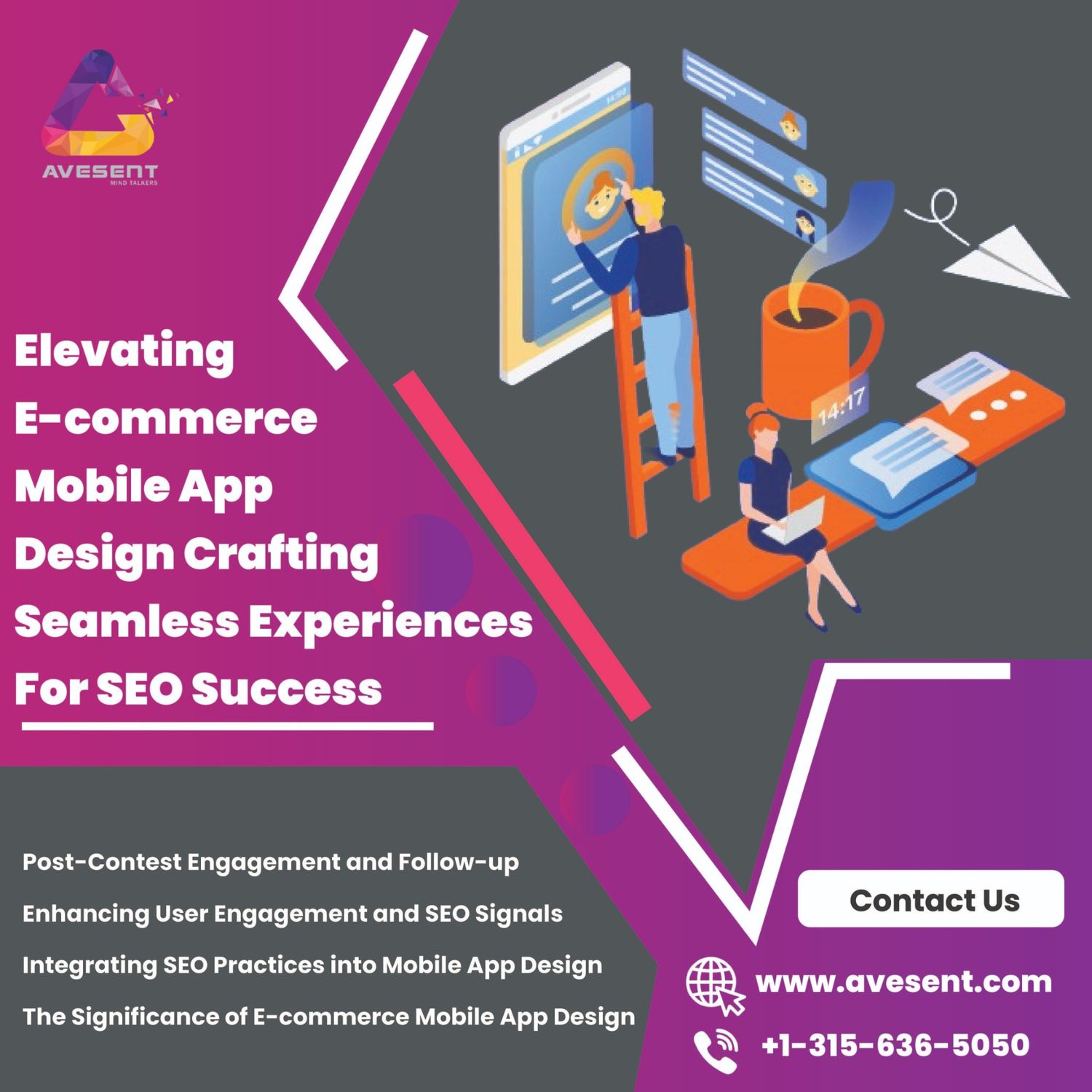Elevating E-commerce Mobile App Design: Crafting Seamless Experiences for SEO Success
Mobile apps are the cornerstone of customer engagement and connection in the constantly changing world of e-commerce. Creating a mobile app design for e-commerce that is optimised is not just about style; it’s a calculated effort that affects SEO (Search Engine Optimisation) and user experiences. As businesses navigate the intricacies of mobile app design, optimizing for seamless experiences becomes paramount. Let’s delve into strategies to create exceptional e-commerce mobile app designs while aligning with SEO best practices for enhanced visibility and user engagement.
The Significance of E-commerce Mobile App Design
1. Mobile-Centric Consumer Behavior
Consumers increasingly prefer shopping through mobile apps. Optimizing mobile app design caters to evolving consumer habits and preferences.
2. Impact on User Experience
Design influences user perception and engagement. A well-designed app enhances user experiences, driving increased conversions and brand loyalty.
Key Strategies for Optimizing Mobile App Design
1. Intuitive User Interface (UI)
Craft an intuitive UI. Simplify navigation, ensure clear CTAs, and create user-friendly interfaces for effortless browsing and purchasing.
2. Seamless Checkout Process
Streamline the checkout process. Simplify steps, implement guest checkout options, and enable various payment methods for a hassle-free transaction experience.
3. Personalized Recommendations
Incorporate personalized product recommendations. Leverage user data to offer tailored suggestions, enhancing user engagement and conversions.
4. Responsive Design for Devices
Ensure responsiveness across devices. Design a scalable app interface that adapts seamlessly to various screen sizes and orientations.
Integrating SEO Practices into Mobile App Design
1. Optimized App Titles and Descriptions
Craft keyword-rich app titles and descriptions. Utilize relevant keywords to improve app discoverability within app stores, aiding SEO efforts.
2. App Content Optimization
Optimize app content for SEO. Ensure relevant keywords in product descriptions, category names, and meta tags for improved search visibility.
3. Image Optimization
Optimize images for search. Use descriptive alt text and optimized file names for images, enhancing SEO visibility within the app.
Enhancing User Engagement and SEO Signals
1. Seamless Performance and Speed
Prioritize app speed and performance. Faster load times and smooth navigation positively impact user engagement and SEO rankings.
2. User-Centric Experience
Focus on user-centric design. Positive user experiences contribute to increased app usage, longer sessions, and improved SEO signals.
3. Social Media Integration
Integrate social sharing features. Enable easy sharing of products or purchases on social media platforms to drive organic visibility and engagement.
Analytics and Iterative Optimization
1. User Behavior Analysis
Analyze user behavior patterns. Use app analytics to understand user interactions, preferences, and pain points for iterative improvements.
2. A/B Testing for Optimization
Conduct A/B testing. Test different design elements, features, or layouts to optimize for better user experiences and SEO performance.
Post-Launch Engagement and Feedback
1. Soliciting User Feedback
Seek user feedback and reviews. Encourage users to provide feedback to enhance app functionalities and address user concerns.
2. Continuous Iteration and Updates
Implement continuous updates. Regularly improve app features, address bugs, and iterate based on user feedback for sustained user engagement.
Conclusion
Crafting an e-commerce mobile app design that prioritizes seamless experiences isn’t just about functionality; it’s a strategic approach that significantly impacts user engagement and SEO visibility. By integrating user-centric design principles with SEO strategies, businesses can create compelling mobile app experiences that resonate with users and boost visibility in competitive markets.
For e-commerce entities aiming to dominate the mobile landscape, optimizing app design for seamless experiences isn’t merely a trend; it’s a strategic investment that not only elevates user satisfaction but also enhances SEO visibility, fostering growth and long-term success.




